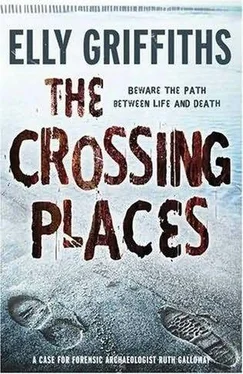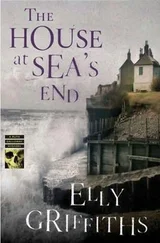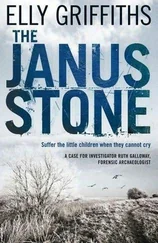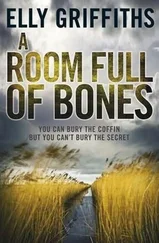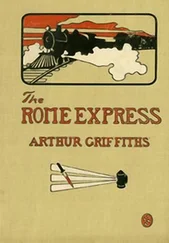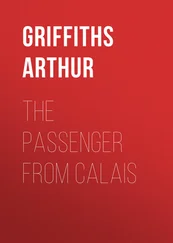'Starbucks eh?' Nelson had said suspiciously.
'Yes. It's the closest. I don't normally go to Starbucks but…'
'Why not?'
'Oh, you know,' she shrugged, 'too global, too American.'
'I'm all for America myself,' said Nelson, still looking doubtfully at the froth on his cappuccino. 'We went to Disneyland Florida a few years ago. It was champion.'
Ruth, for whom the idea of Disney World is sheer unexpurgated hell, says nothing.
Now Nelson puts down his Styrofoam cup and asks again, 'Is he a nutter?'
'I don't know,' says Ruth slowly. 'I'm not a psychologist.'
Nelson grunts. 'We had one of those. Talked complete bollocks. Homoerotic this, suppressed that. Complete crap.'
Ruth who had, in fact, thought she noticed a homoerotic subtext to the letters (assuming, of course, that the writer is male), again says nothing. Instead she gets the letters out of her bag.
'I've categorised the references in the letters,' she says. "I thought it was the best way of starting.'
'A list,' says Nelson approvingly. "I like lists.'
'So do I.' She gets out a neatly typed sheet of paper and passes it to Nelson.
Religious
Ecclesiastes
Isaac
Christmas
Christ dying on cross/Easter
St Lucy
St Lucy's Day (21 December) St John's Day (24 June)
All Saints' Day (1 November) Jeremiah
Literary
Shakespeare:
King Lear: 'A man may see how the world goes with no eyes.'
Henry V: 'A little touch of Harry…'
Julius Caesar: 'Graves have yawned and yielded up their dead.'
T.S. Eliot, Ash Wednesday: 'There, where trees flower, and springs flow, for there is nothing again.'
The Waste Land: 'We, who were living are now dying.'
Norse legend
Odin
The Tree of All Knowledge (the World Tree, Yggdrasil) Pagan
Summer solstice
Winter solstice
Litha (Anglo-Saxon word for the solstice) Wicker Man
Sun God
Shamanism
Will o'the wisps
Mistletoe
Greek legend Argus
Archaeological
Cursuses
Causeways
Nelson reads intently, his brows knitted together. 'It's good, seeing it all spread out like this,' he says at last, 'otherwise you can't tell which is a quote and which is just mumbo jumbo. "We who were living are now dying," for example. I thought that was just more spooky stuff. I never realised it was an actual quote.'
Ruth, who has spent hours trawling through Eliot's Collected Poems, feels gratified.
Nelson turns back to the list. 'Lots of biblical stuff,' he says, 'we spotted that straight off. Psychologist thought he might even be a lay preacher or an ex-priest.'
'Or maybe he just had a religious upbringing,' says Ruth. 'My parents are Born Again Christians. They're always reading the Bible aloud, just for kicks.'
Nelson grunts. 'I was brought up a Catholic,' he says, 'but my parents weren't really into the Bible. It was more the saints, praying to this one or that one, saying Hail Marys. Jesus – a decade of the rosary every bloody day! It seemed to take hours.'
'Are you still a Catholic?' asks Ruth.
"I had the girls baptised Catholic, more to please my mum than anything else, but Michelle's not a Catholic and we never go to church. Don't know if I'd say I was a Catholic or not. A lapsed one maybe.'
'They never let you get away, do they? Even if you don't believe in God, you're still "lapsed". As if you might go back one day.'
'Maybe I will. On my death bed.'
"I won't,' says Ruth fiercely, 'I'm an atheist. After you die, there's nothing.'
'Shame,' says Nelson with a grin, 'you never get to say I told you so.'
Ruth laughs, rather surprised. Perhaps Nelson regrets this foray into levity because he turns back, frowning, to the list.
'This guy,' he says, 'what does he believe?'
'Well,' says Ruth, 'there's a strong theme of death and rebirth, the seasons, the cycle of nature. I would say his beliefs were more pagan, though. There's the mention of mistletoe, for instance. The druids considered that mistletoe was sacred. That's where the tradition of kissing under the mistletoe comes from.' She pauses.
'Actually, our Iron Age girl. She had traces of mistletoe in her stomach.'
'In her stomach?'
'Yes, maybe she was forced to eat it before they killed her. As I said, ritual sacrifice was quite common in the Iron Age. You find bodies that have been stabbed, strangled, clubbed to death. One body found in Ireland had its nipples sliced through.'
Nelson winces. 'So does our guy know about all this Iron Age stuff?'
'It's possible. Take this stuff about sacrifice, the wicker man. Some people think that Iron Age man made human sacrifices every autumn to ensure that spring came again the next year. They put the victim in a wicker cage and burnt it.'
"I saw the film,' says Nelson, 'Christopher Lee. Great stuff.'
'Well, yes. It was sensationalised, of course, but there's a theme of sacrifice that runs through all religions. Odin was hung on the World Tree to gain all the knowledge of the world. Christ was hung on the cross. Abraham was prepared to sacrifice his son Isaac'
'What did that mean, "Like Isaac, like Jesus, she carries the wood for her own crucifixion."'
'Well, Isaac carried the wood on which he was to be burnt. There's a clear echo of Christ carrying his cross.'
'Jesus.' There is a silence. Ruth suspects that Nelson is thinking of Lucy Downey, condemned, perhaps to carry the instruments of her own death. She thinks of her Iron Age body. Was she really staked down and left to die?
'Actually,' says Ruth, 'there's one very interesting Bible reference. This one from Jeremiah. "A curse on the man who puts his trust in man."'
"I didn't even realise that was from the Bible.'
'Well, it is. One of the prophets. Anyway, I looked it up and guess how the next bit goes…' She recites it for him: A curse on the man who puts his trust in man, who relies on the things of flesh, whose heart turns from the Lord.
He is like dry scrub in the wastelands, if good comes, he has no eyes for it, he settles in the parched places of the wilderness, a salt land, uninhabited.
Nelson looks up. 'A salt land?'
'Yes.'
'The Saltmarsh,' says Nelson, almost to himself, 'I always wondered about that place…'
'Actually, I think there are a few things that might point to the Saltmarsh,' says Ruth. She reads from one of the letters, Look to the sky, the stars, the crossing places. Look at what is silhouetted against the sky. You will find her where the earth meets the sky. Erik – an archaeologist I know – he says that prehistoric man may have built structures on flat landscapes like the fens or the marshes because they would stand out so much, be silhouetted against the sky. He thinks that's one reason why the henge was built on the Saltmarsh.'
'But other places are flat. Specially in this Godforsaken county.'
'Yes, but…' How can she explain that she thinks the letter writer shares Erik's views about a ritual landscape, about marshland being the link between life and death.
'Remember what I said about marshland?' she says at last.
'We quite often find votive offerings or occasionally bodies buried there. Maybe this man' – she gestures to the letters – 'maybe he knows that too.'
'You think he's an archaeologist?'
Ruth hesitates. 'Not necessarily but there's this word, cursuses.'
'Never heard of it.'
'Exactly! It's a very technical word. It means a parallel ditch with banks on the inner sides. They're often found within early ritual landscape but we don't know what they were used for. At the Maxley Cursus, for example, they found shamans' batons.'
'Shamans' what?'
'Pieces of decorated deer antler. They would have been used by the shaman, the holy man.'
'What for?'
Читать дальше
